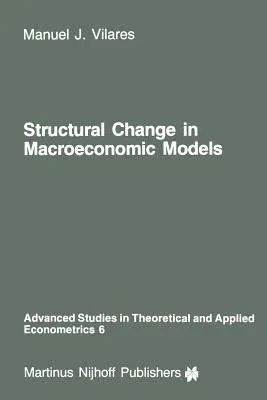M J Vilares
(Author)Structural Change in Macroeconomic Models: Theory and Estimation (Softcover Reprint of the Original 1st 1986)Paperback - Softcover Reprint of the Original 1st 1986, 6 October 2011

Qty
1
Turbo
Ships in 2 - 3 days
In Stock
Free Delivery
Cash on Delivery
15 Days
Free Returns
Secure Checkout
Part of Series
Advanced Studies in Theoretical and Applied Econometrics
Print Length
274 pages
Language
English
Publisher
Springer
Date Published
6 Oct 2011
ISBN-10
9401084424
ISBN-13
9789401084420
Description
Product Details
Author:
Book Edition:
Softcover Reprint of the Original 1st 1986
Book Format:
Paperback
Country of Origin:
NL
Date Published:
6 October 2011
Dimensions:
23.39 x
15.6 x
1.47 cm
ISBN-10:
9401084424
ISBN-13:
9789401084420
Language:
English
Location:
Dordrecht
Pages:
274
Publisher:
Weight:
394.63 gm

